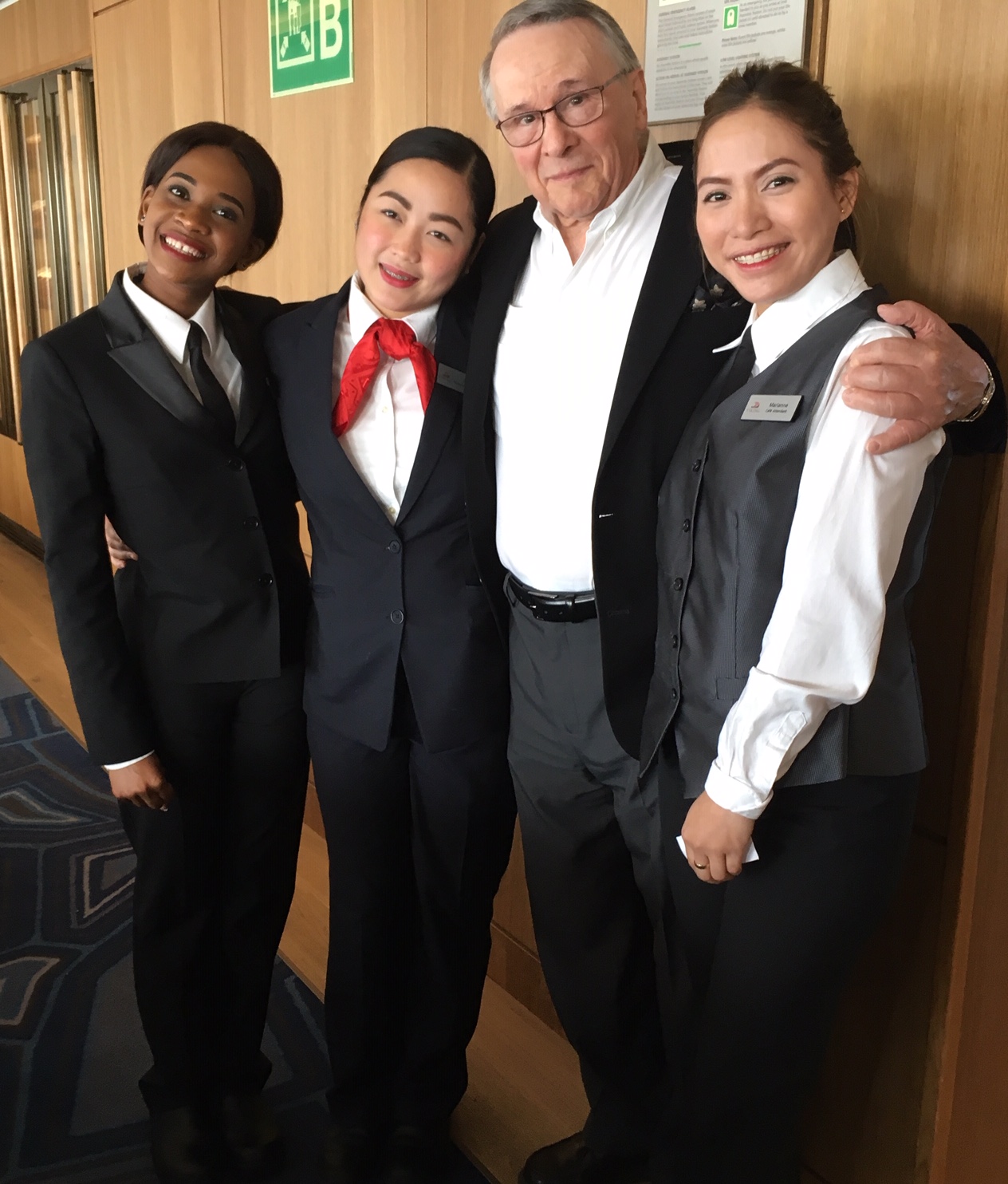There is nothing like a couple of weeks at sea for escaping daily routines and having the opportunity to ponder challenging questions. I recently had the good fortune of such an escape on the ship Viking Sea as it navigated the Atlantic from San Juan, Puerto Rico to Barcelona, Spain. Among the questions I addressed was “What makes an enterprise successful?”
I did not have to call this question to mind because my everyday experience aboard the ship both raised and answered it. One secret of Viking’s success that has earned it the top ranking* among ocean cruise lines is continuing improvement of service.
Like its sister ocean vessels, the Viking Sea carries 900 passengers rather than the 2000 or 3000 that has become the norm for most competitors. Though smaller size might be considered a disadvantage, in this case I found it to be the opposite. Almost all the features found on larger ships were present on Viking Sea, including an attractive theater, a number of dining places and cuisines, a variety of entertainment, informative lectures, and many quiet places to read, chat with others, and play cards or board games. The difference was that the ship’s smaller size made it easier to get from one location to another, just as the smaller number of passengers encouraged interaction among them.
An even more impressive Viking secret was its exceptional treatment of passengers—more like guests in one’s home, and even as good friends, rather than mere customers. The attitude of everyone from cabin stewards and dining room staff to the ship’s officers was “we are pleased to have you sailing with us and want to make your voyage something to remember.” More than a slogan, this attitude was conveyed with an enthusiasm that was both genuine and contagious.
One example of this enthusiasm was that when passengers returned from some off-ship excursions, they were greeted by a couple of dozen of the ship’s staff standing on the dock waving and singing a welcome song with musical accompaniment. Another was the participation of officers and staff with passengers in games and contests. A third was the captain’s farewell gathering in the ship’s theater, with virtually every officer, cabin steward, and dining room server gathering on the stage and singing a tribute to the passengers.
It would be impossible to list all the staff whose kindness made the cruise an unforgettable experience, so I will mention only the three who hold a special place in my memory: Amalga Sibanda (from Zimbabwe), Marianne Chloris Francia, and Joan Drino Chavez (both from the Philippines). Amalga’s smile radiated her inner joy and good will toward others. Marianne was unfailingly cheerful and had the delightful habit of singing softly to herself as she worked. Among Joan’s duties was ensuring that passengers with dietary restrictions were accommodated at every meal, a challenging assignment that is to my knowledge unique to Viking, and she performed it with grace and good humor. All three young women are very special people.
The “secrets of success” I have described are certainly not unique to Viking. They can be observed in all kinds of enterprises in all fields of endeavor. For example, they are what makes Panera Bread so highly respected, and they explain why grocery chains Publix and Wegman’s continue to be leaders in their field.
Those “secrets” are, on closer examination, not really so secret after all. They have been recognized for millennia in virtually every culture and are best known as the Golden Rule—“Do unto others as you would have them do unto you.” And they are admirable not just in business enterprises but in all human relationships.
*Note: Viking enjoys a similar ranking for its river cruises, but adverse conditions on European rivers have caused a number of problems for both Viking and its competitors that sometimes result in unhappy experiences for passengers.
Copyright © 2019 by Vincent Ryan Ruggiero. All rights reserved




